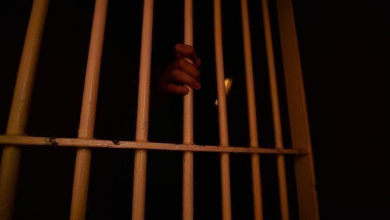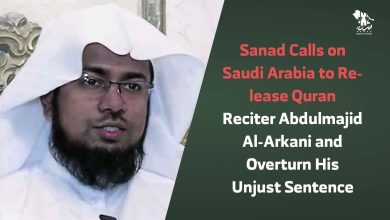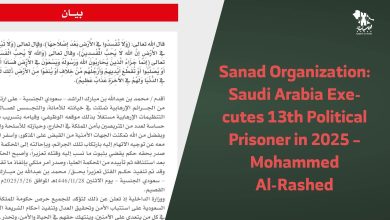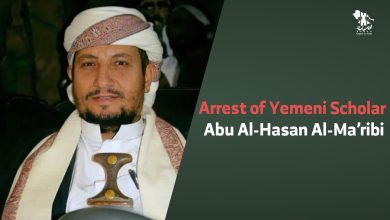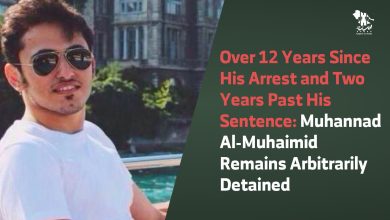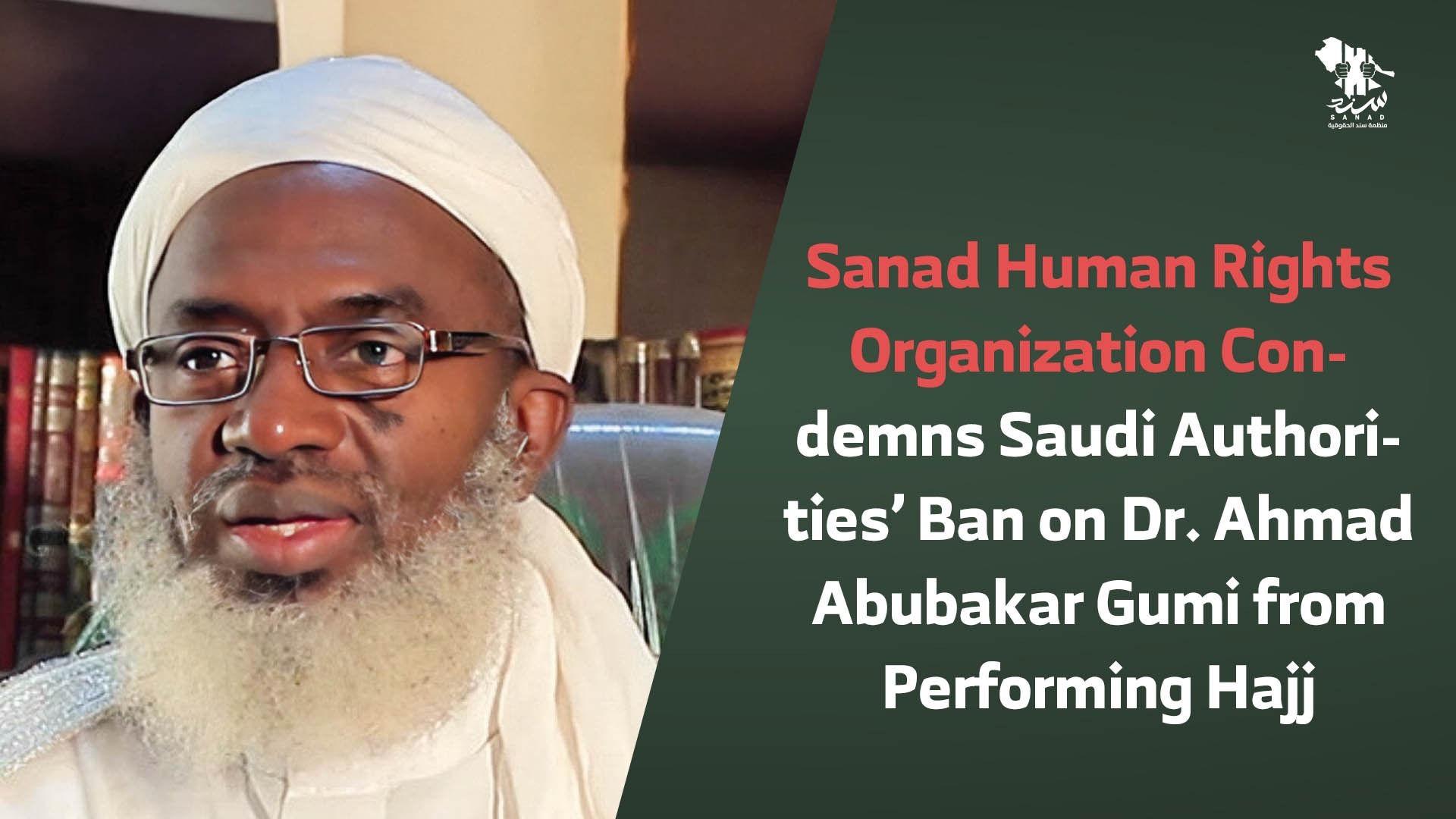
Sanad Human Rights Organization Condemns Saudi Authorities’ Ban on Dr. Ahmad Abubakar Gumi from Performing Hajj
Sanad Human Rights Organization strongly condemns the arbitrary and unjustified ban imposed by the Saudi authorities on Dr. Ahmad Abubakar Gumi, one of Nigeria’s most prominent Islamic scholars and preachers, preventing him from performing the Hajj pilgrimage—despite having obtained an official visa and already being present on Saudi soil. This action represents a blatant violation of his religious and human right to worship, as guaranteed by both international law and Islamic principles.
Dr. Gumi had received an official invitation from Nigeria’s National Hajj Commission (NAHCON) to join the country’s Hajj delegation this year as a religious adviser and mufti, given his renowned scholarly status and his longstanding role in guiding Nigerian pilgrims—numbering over 35,000 this year.
Despite clearing all security and administrative procedures upon arrival at Madinah Airport, and with no restrictions or bans registered against him, Dr. Gumi was unexpectedly informed—unofficially by a senior Saudi official—that the “Kingdom does not wish for him to enter.” No formal reason or legal basis was provided for this decision.
Dr. Gumi was then forced to leave Saudi Arabia at his own expense via a non-direct flight, without any official support, explanation, or apology from the Saudi authorities.
Credible sources have indicated that the decision may be politically motivated, citing Dr. Gumi’s outspoken support for the Palestinian cause. In a public statement, he expressed regret, saying: “Because of my views on global politics, the Saudi authorities do not want me to attend the Hajj, even though they granted me a visa.”
Sanad Human Rights Organization considers this act a serious infringement on freedom of worship, and a violation of Islamic values and international covenants that guarantee every Muslim the right to perform religious rites without discrimination or political reprisal. Sanad calls on the Saudi authorities to uphold their religious and ethical responsibilities as custodians of the holy sites, and to ensure open and non-discriminatory access to Hajj for all Muslims—free from political exploitation or arbitrary restriction.


